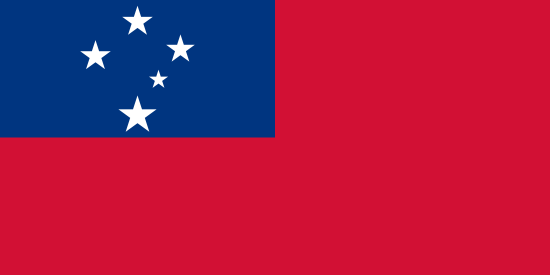
Health Insurance in Samoa, Oceania
Information expatriation
Capital City: Apia
Total area: 2,831 km2
Population: 188,540 (2008)
Money: Currency Converter
Time Zone: List of time zones by country
Calling Code: +685 XXX
Practical Information:
Health Product: Travel Insurance and Health insurance
Health Insurance information and Sanitary Risk: World Health Map
BLOG: Expat Health insurance Information
Here is a brief description of the healthcare system in the country:
· Samoa has a public healthcare system that is largely tax-funded and aims to provide universal access to primary care services.
· Public hospitals located in Apia and several rural health centers and clinics around the country offer general medical care free of charge.
· Services include check-ups, screenings, basic laboratory/radiology, maternity/pediatric care, treatment for minor illnesses and emergencies.
· For specialist care or complex procedures, patients may be referred overseas to facilities in New Zealand, Australia or Asia through public medical programs and physicians.
· There is a small private healthcare sector of doctors' offices, pharmacies and private medical facilities for a fee as an optional alternative.
· Major health issues revolve around non-communicable diseases like heart disease, diabetes, cancer due to lifestyle changes and obesity rates.
· Basic sanitation and access to clean water mean infectious diseases are generally not a huge concern.
· Healthcare resources are adequate for the population of around 200,000 people.
· Life expectancy is approximately 74 years, similar to other Pacific island nations.
· So in summary, Samoa offers universal primary coverage through taxation-funded public hospitals and clinics, with private supplemental options also accessible for a fee.
Here are some key health considerations for expatriates living in the country:
· Access primary care services at public hospitals and clinics free of charge.
· Purchase private medical insurance for coverage of specialist referrals overseas or private healthcare costs.
· Maintain insurance through your home country as well for short stays. Local private plans also exist.
· Practise basic safety precautions against insect bites/mosquitoes and tropical diseases.
· Boil or filter tap water from rural areas as a precaution despite reliable infrastructure.
· Hot, humid climate differs from temperate regions. Monitor health risks like dehydration and hyperthermia.
· Bring adequate supplies of prescription medications rather than relying on local availability.
· Mental health support options may be limited; cultivate social support networks.
· Emergency medical evacuations require thorough flight and insurance coverage.
· Learn about and respect cultural norms within the healthcare system.
· Monitor chronic conditions carefully due to limited specialist resources on island.
· Proper health insurance, preventive practices, and support systems can help ensure access to necessary care services during relocation to Samoa.
